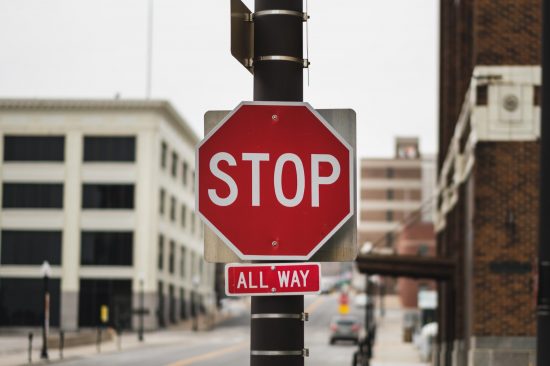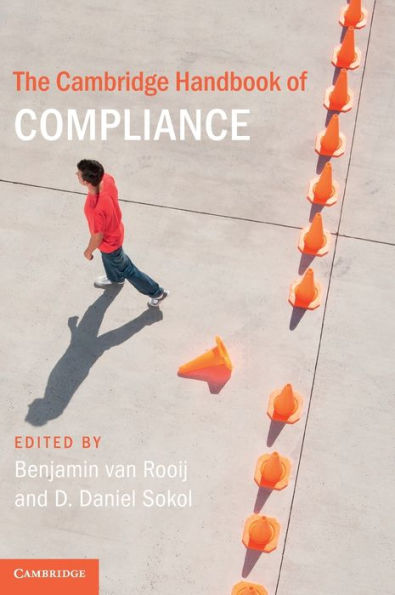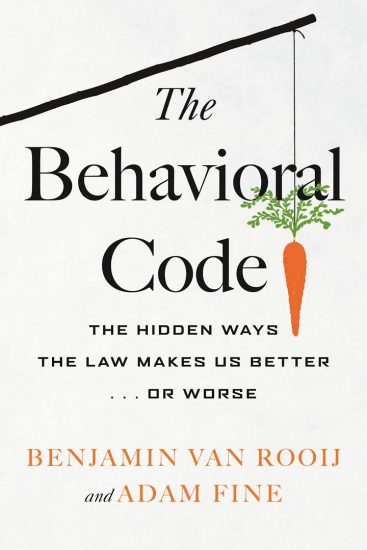Click below to read more about the research, meet the project team, and see the latest publications.

Research Worth Sharing
Book Release: The Cambridge Handbook of Compliance


Book Release: The Behavioral Code: The Hidden Ways the Law Makes Us Better...or Worse
Freakonomics for the law–the revolutionary behavioral science insights into how law fails to reduce misbehavior and what we can do about it.
Why do some laws radically change behavior whereas others are consistently ignored and routineley broken? Why doe we keep relying on harsher punishment against crime even though that keeps failing?
Drawing upong decades of research, the authors reveal the behavioral code: the root causes and hidden forces that drive human behavior and our responses to society’s laws. The book offers a fundamentally different approach to crime and injustice that is based in empirical science–rather than relying just on false intuitions.
The Behavioral Code shows that the law can only be effective if it moves beyond traditional sticks and carrots. In this authoritative book on law and human behavior, the authors explore the role of the behavioral code through engaging and unexpected examples, including:
- President George H. W. Bush’s service dog, which demonstrates alternative therapies for violent crime
- Tennis star Maria Sharapova’s doping experience, which teaches us why we must ensure that people have the capacity to follow the law
- A $2.3 billion Pfizer legal settlement which reveals that creating intuitively appealing programs like whistleblower protections will fail at reducing rampant corporate malfeasance
- An averted terrorist attack more than twice the size of 9/11 that shows how simple interventions grounded in the opportunity approach can effectively prevent harm
Highly entertaining and counterintuitive, The Behavioral Code catalyzes the conversation about how the law can respond to some of our most pressing issues today, including violent crime, police misconduct, environmental degradation, corporate crime, and pandemic mitigation.
Human Risk Podcast with guest Professor Benjamin Van Rooij
Listen to the latest HumanRisk podcast with Christian Hunt and guest Professor Benjamin van Rooij.
In this discussion, Benjamin highlights some of the ways in which the law influences us in ways we might not realise and explores how some traditional ideas about how we can get people to behave in a particular way are flawed – they either don’t work or are counter-productive.
🎧 To listen to the podcast, click here.

Amsterdam Law Hub: Malouke Kuiper
The Amsterdam Law Hub has created a video about our project member Malouke Kuiper and her current research. In this video Kuiper explains how behavioral insights are important to law, and yet in practice, they are not always applied. Her research aims to illuminate this misalignment between law makers’ attempts to influence behavior and our current knowledge of how human behavior actually works based on social science.